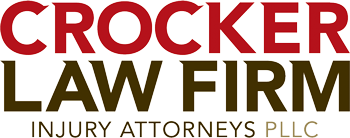
Important steps to take after a car accident.
No one likes to think about car accidents. Still, each year an estimated six million accidents occur in the United States. Approximately 75 percent of these accidents will cause injuries that require medical attention. With statistics like this, you or a loved one will likely need help navigating the claims process. The first steps you take immediately following an accident will affect the outcome of your claim.
File a Police Report. Call the police and allow the officer to make a report. If the situation requires you to check on the well-being of those in the other car, then do it. However, keep your interactions brief and limited strictly to information gathering. Do not apologize or admit fault, nor should you become angry or aggressive with anyone at the scene of the accident. Any of these statements or behaviors may be harmful to your future claim.
Medical Decisions. Health and safety are a priority after a wreck. Drivers need to seek immediate medical attention if necessary for themselves and their passengers. If you do not want to take an ambulance and do not require immediate treatment, a family member or friend may take you to a medical facility. You may not know whether you are injured or to what extent right away. After an accident, adrenaline can mask any injury, so always follow up with your primary care provider.
Gather information. If you or someone on your behalf is able to gather information right away, it can be very helpful.
- Get the other driver’s information. Take a photo with your phone of both the other driver’s license and their car insurance information. Getting this information can make the claims process smoother and is essential if you are required to file a police report later.
- Take photos of your car, the other vehicle, and the surrounding area if it is safe to do so. Pictures can help tell the story of how the accident occurred and show the damage to the vehicle.
- Gather the name and contact information of any potential witnesses. Is there another driver who stopped to help? Did a homeowner or store clerk observe the wreck? It is difficult to find a witness without this contact information.
- Take photos of your injuries after the accident. A picture is worth a thousand words. Pictures of your injuries help describe how the accident has affected you.
Do not give a statement to the insurance company. Remember, insurance companies have motives that differ from yours. The insurance adjusters are not obligated to advise you or warn you of any mistakes. It is better to get a lawyer as soon as possible so they can evaluate your case, collect evidence, and maximize insurance coverage. Your attorney should be there to help you before you provide a statement or settle a claim.

